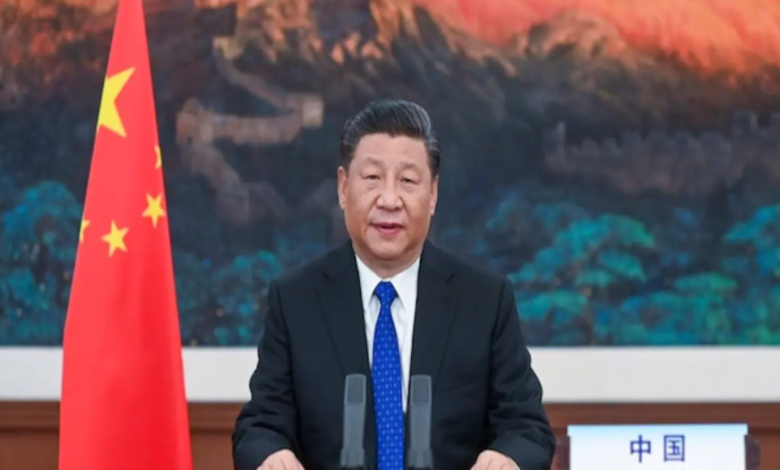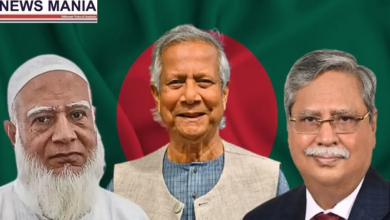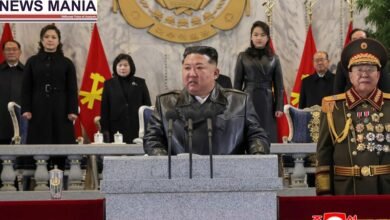If China Under Xi Jinping Becomes Paranoid, Chances For India Can Arise

Despite the fact that China is a large neighbor and we have a tense relationship with it, the Indian people have comparatively little access to well-researched works concerning Chinese trends. The discourse in the public sphere is fragmented and frequently sensationalizes news regarding China. As a result, we rely on western literature to explain China to us. It is crucial that we foster Indian viewpoints on China that are grounded in thorough research by supporting the small but expanding community of young scholars to investigate diverse aspects, both historical and modern. The larger ecosystem, which consists of the national security structures, the media, business, and industry, must first acknowledge the worth of such research and be prepared to fund it before this can occur.
In any system, personnel changes are significant, but from a wider viewpoint, Xi Jinping’s political influence over the CPC is more crucial. From the standpoint of policy, this indicates that there will be a further consolidation of power and top-down policy direction. These factors might be restrained by general secretary Xi’s more stringent and centralized decision-making, which could then have an impact on China’s internal and foreign policies. Having said that, the world has significantly overestimated China’s leadership over the past 40 years, and it should not be assumed that tighter regulations will inevitably result in a sharp drop. However, the chances of a smooth transition are reduced when a once predictable political system with norm-bound succession rules is replaced by the uncertainties that invariably arise when individuals rule, so any analysis should take the possibility of political unrest in China in the future into account.
The Communist Party of China has focused on and invested in hiring highly educated and technically skilled individuals for the past 40 years. In that sense, skilled professionals are in charge of the Chinese political system. Political loyalty appears to have surpassed professional competency in terms of advancement to higher offices, however, Xi Jinping’s credo of a centralized, unified leadership is replacing Deng Xiaoping’s vision of reform and opening up through decentralization of authority. This pattern is evidenced by the most recent nominations to the Politburo and its Standing Committee. It would be erroneous to assume that the new leadership’s aptitude or skill would be diminished by this. It is unclear whether the emphasis on political allegiance will lessen the desire for risk-taking reform and decision-making.
More national security experts have been added to the Politburo and Secretariat, reflecting Xi’s concerns that the national security system still lacks appropriate & insufficient response capabilities for dealing with big challenges, which he expressed at the recently finished party congress. According to him, foreign efforts to control and suppress China may rise at any time. A reflection of Xi’s aim to tighten the system and resist any attempts to threaten the party’s grasp on power is the inclusion of party members in the national security structures. Having said that, an increasing perception of threat may also result in paranoia, which has a medium- to a long-term negative impact on economic growth and creativity. We must watch out for this because it presents the potential for India.
It is currently unclear why Hu Jintao left the platform on the second to last day given the opaqueness of the Chinese system. Since 2012, Hu Jintao’s group of the Communist Youth League has been progressively losing support. However, this does not herald the end of factionalism. We can infer from a review of the party’s past that factionalism is pervasive. Even Mao found it difficult to completely subdue or eradicate them. The 20th congress simply does not represent the formal end of factionalism in Chinese elite politics, as we just do not know enough about internal political processes within the party to draw that conclusion. In time, new factions will emerge as candidates to succeed Xi’s vie for control.
Under Hu Jintao, the PLA of China began to undergo modernization. Through extensive reform of organizational structures, operational procedures, and equipment upgrading, Xi Jinping has carried on the tradition. Three aspects of his speech deserve special attention. His declaration that China will update its strategic deterrent signals the start of a qualitative nuclear force upgrade. He has also discussed developing cutting-edge capabilities for local warfare that will have an impact on their capabilities along their borders. In order to have a semi-permanent naval presence in the Indian Ocean, China is likewise making deliberate progress in this direction. There is no reason to panic. We must be organized.
News Mania Desk






